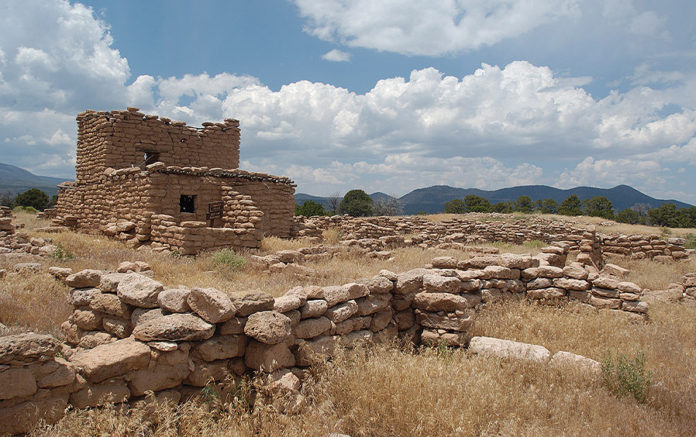WASHINGTON, D.C. – Assistant Secretary for Indian Affairs Bryan Newland announced that Indian Affairs has reached a new milestone by approving the 100th tribal regulation under the Helping Expedite and Advance Responsible Tribal Homeownership Act of 2012, or HEARTH Act.
With the approval of the business and residential leasing ordinance, the Pueblo of Santa Clara, a federally recognized Tewa Tribe in New Mexico, is now able to exercise its sovereignty more fully over its trust lands.
“Today, we have reached a remarkable milestone on the road to revitalizing tribal nations: The Pueblo of Santa Clara’s HEARTH Act ordinance is the 100th to be approved under the BIA’s HEARTH Act process,” said Assistant Secretary Newland. “The HEARTH Act remains a powerful means for tribal self-determination and sovereignty by restoring the tribes’ ability to make their own decisions about how best to utilize their lands. I congratulate the Santa Clara Pueblo people on their success and wish them the best for their prosperity.”
The HEARTH Act promotes tribal self-determination by making a voluntary, alternative land-leasing process available to federally recognized tribes through the Department of the Interior. It restored the authority of tribes to develop and implement their own laws governing the long-term leasing of Indian trust lands for agricultural, business, renewable (solar and wind) energy, residential and other purposes. A list of the tribes with approved HEARTH Act regulations can be found at https://www.bia.gov/service/HEARTH-Act/approved-regulations.
The Pueblo of Santa Clara may enter into business leases to improve economic development. Also, the Pueblo may enter into residential leases associated with housing projects undertaken by the Pueblo of Santa Clara Housing Authority and in partnership with development projects by the Santa Clara Development Corporation. The business and residential leases can be executed without prior lease review and approval by the Department of the Interior.
Under the HEARTH Act, the Secretary of the Interior is authorized to approve tribal leasing regulations if they are consistent with DOI’s leasing regulations and provide for an environmental review process that meets requirements set forth in the Act. Once a tribe’s HEARTH Act regulations are approved, it can negotiate and enter into leases without further approvals by the Secretary.
To date, 85 tribal nations have received Secretarial approval for leasing regulations with another 10 awaiting approval and more expressing an interest in the process.
Tribes may submit HEARTH Act regulations to BIA for agricultural, business, wind, and solar resource leases of tribal trust lands for a primary term of 25 years, and up to two renewal terms of 25 years each. Leases of tribal trust lands for residential, recreational, religious or educational purposes may be executed for a primary term of up to 75 years.
The BIA Office of Trust Services’ Division of Real Estate Services administers the HEARTH Act review process for tribal leasing regulations applications. Interested tribes may submit their regulations by mail to:
U.S. Department of the Interior, Bureau of Indian Affairs
Office of Trust Services, Deputy Bureau Director – Trust Services
Attention: Division of Real Estate Services
1849 C Street, N.W., MS-4620-MIB
Washington, D.C. 20240














































